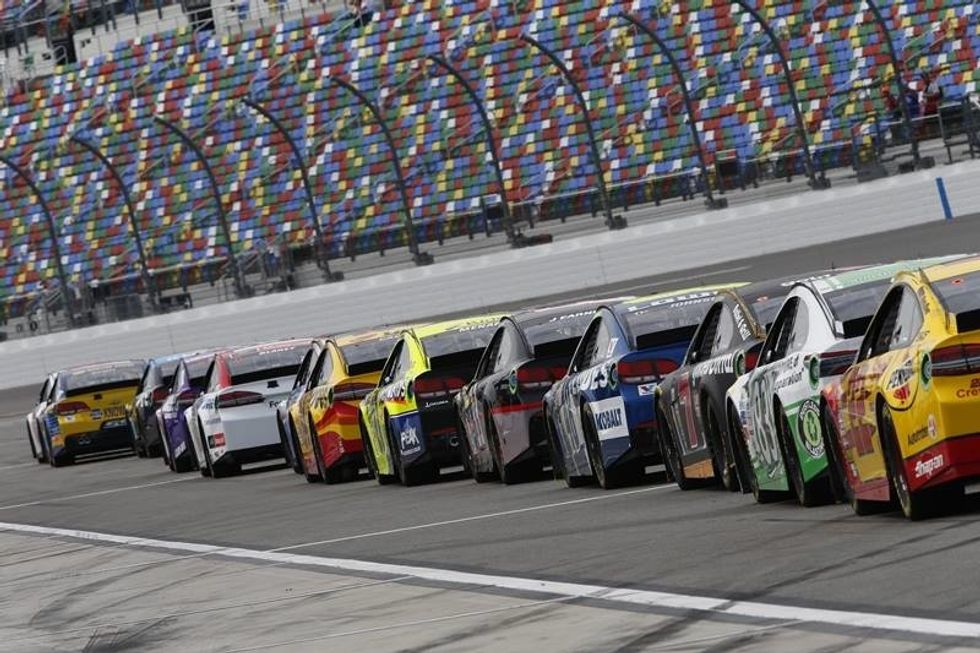I found NASCAR in the mid 2000s through playing the sport's video games at a friend's house. I was hooked on the fast paced, close, aggressive racing that was portrayed in the game. By the start of the 2006 season, I decided to start following the sport intensely despite rarely being exposed to auto racing, especially NASCAR, growing up in the northern US. Now, thirteen years later, much of my interest in following NASCAR is gone, for a variety of reasons.
Part of the reason I wanted to start watching NASCAR was Carl Edwards. Edwards had just completed his rookie year in 2005 in the league's top series. He had won four times that season, and after each win, he did a backflip off of his car as his signature celebration. That drew me in and he became my favorite driver. After the 2016 season, Edwards retired from NASCAR; with NASCAR being an individual sport, fans like me sometimes have a hard time finding a new favorite driver, which quells our interest.
Most races seem to have less and less parity than when I started watching. Many smaller teams were hit incredibly hard by the recession in 2008. Since auto racing is an incredibly costly sport in terms of building and testing cars even before the racing phase, the big money teams have a huge advantage to produce faster, consistently competitive cars. With less parity, most races (even with a new aero package) are quite predictable in terms of who will compete for the win; it is usually the same 10-15 cars with a real chance at winning, meaning the rest of the 40 car field are just "filler cars'" to fill out the race.
Like with Edwards, many other drivers who were mainstream when I started watching the sport have retired. Top drivers such as Dale Earnhardt Jr, Jeff Gordon, Tony Stewart, Jeff Burton, Mark Martin, and Kasey Kahne are out of the Cup Series. While the diehards who have lived and breathed NASCAR since birth have had less of an issue adjusting to a new looking top series of drivers, it has been odd for myself to see the sport's driver makeup change so much. Many of the newer drivers have given me no reason to root for them.
NASCAR has made so many rule changes over the years that the races are almost unrecognizable compared to the past. YouTuber UrinatingTree makes many good points about the rule changes in this video. It has seemed like the league's management has tried to appeal to a younger audience, but has mangled the sport so much that has ticked off older fans like myself, some of whom are incredibly confused by new formats or technicalities. Stage racing, beginning in 2017, allows for extra caution flags that bunch the field back up into a pack for the restart, but penalizes drivers who run consistently good throughout the race. This format resembles more of a video game as opposed to normal racing, upsetting many.
Other sports have appealed to me more and more. I have become a huge hockey fan since starting college, and the NHL is much more interesting and exciting compared to NASCAR in my opinion. With sports like hockey taking up more of my entertainment viewing time, I have less time for NASCAR and subsequently set aside fewer time to keep up with the sport.
While I still enjoy catching a race fairly often on TV, the rule changes, lack of parity, and my own lack of ability to find a compelling new favorite driver have led to my waning interest in NASCAR. I don't know if that will change in the future, but it has been odd watching fewer and fewer races compared to past years.












